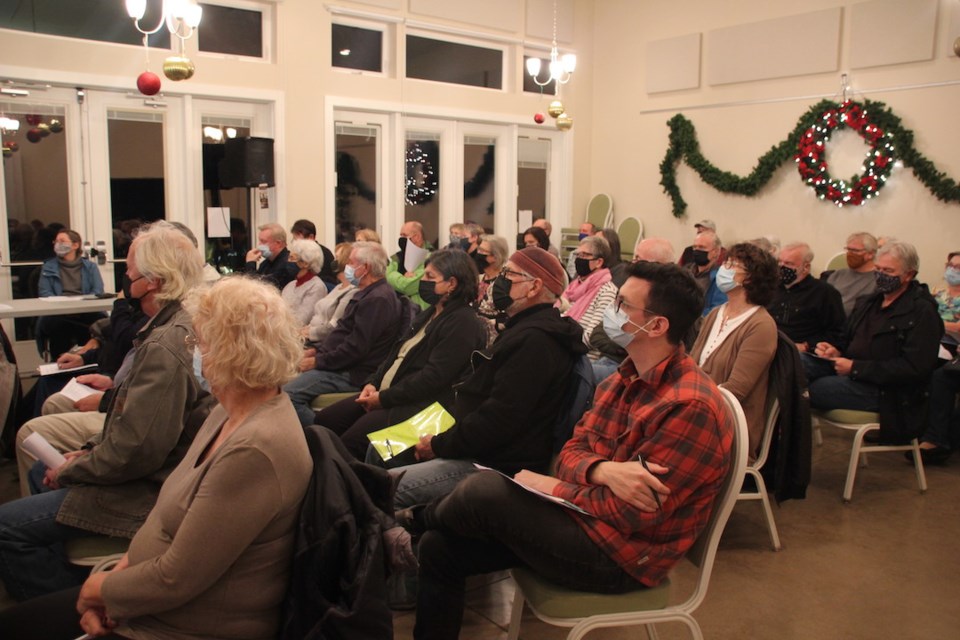On the dark and stormy night of Nov. 30, the West Sechelt Community Association drew around 45 residents to their annual general meeting, where the mayor addressed residents’ concerns about suspected neighbourhood grow-ops.
One of the association board members said they’ve seen industrial-strength electrical connections to houses that appear to be empty, large quantities of soil in driveways, and strange traffic. Residents have also complained about odours. So association members took down addresses and licence plate numbers, took pictures, and complained to bylaw officers, the board member told attendees.
But it’s difficult for municipalities to track legal cannabis productions.
While municipalities can legislate where licensed commercial facilities can be located, local governments are not provided information about individuals who have a medical licence. Sechelt mayor Darnelda Siegers said it is similar for the RCMP, who can only get such information if there is a criminal investigation.
“The federal government determines security, odour control, all of those kinds of things. All we can determine is where they can be,” Siegers said, as she presented a brief history of cannabis legislation in Canada, and the role of municipalities, to attendees at the Sunshine Coast Botanical Gardens.
The District of Sechelt created legislation about location, including parameters that commercial producers can’t be within a certain distance from schools.
But an individual’s medical licence is registered with Health Canada, then “they expect the registered individuals to obey all federal, provincial and municipal laws and bylaws, although there's no mechanism to make that happen,” Siegers said.
After the West Sechelt Community Association raised their concerns with Siegers and the RCMP earlier this year, Siegers attended the Union of B.C. Municipalities conference in September and addressed the issue with officials there. The Minister of Public Safety, and others, signed a letter written by the district and agreed to help deal with the federal government, Siegers said.
The Cannabis Act passed in October 2018 and requires a three-year review period, which will start soon, Siegers said. Sechelt will reach out to the minister responsible for the review. Other local governments in B.C. have also expressed a desire for more information sharing between federal, provincial and local governments, including location of personal medical cannabis production in communities, she said. Local governments have also asked for more frequent and ongoing monitoring by Health Canada.
“We know it's an issue. It's a huge community safety issue, livability issue, and we would love to get involved with all the rest of the communities across the country and make sure these things happen,” she said.
After one resident said suspected grow-ops should have their power cut off, his comment was met with a round of applause.



